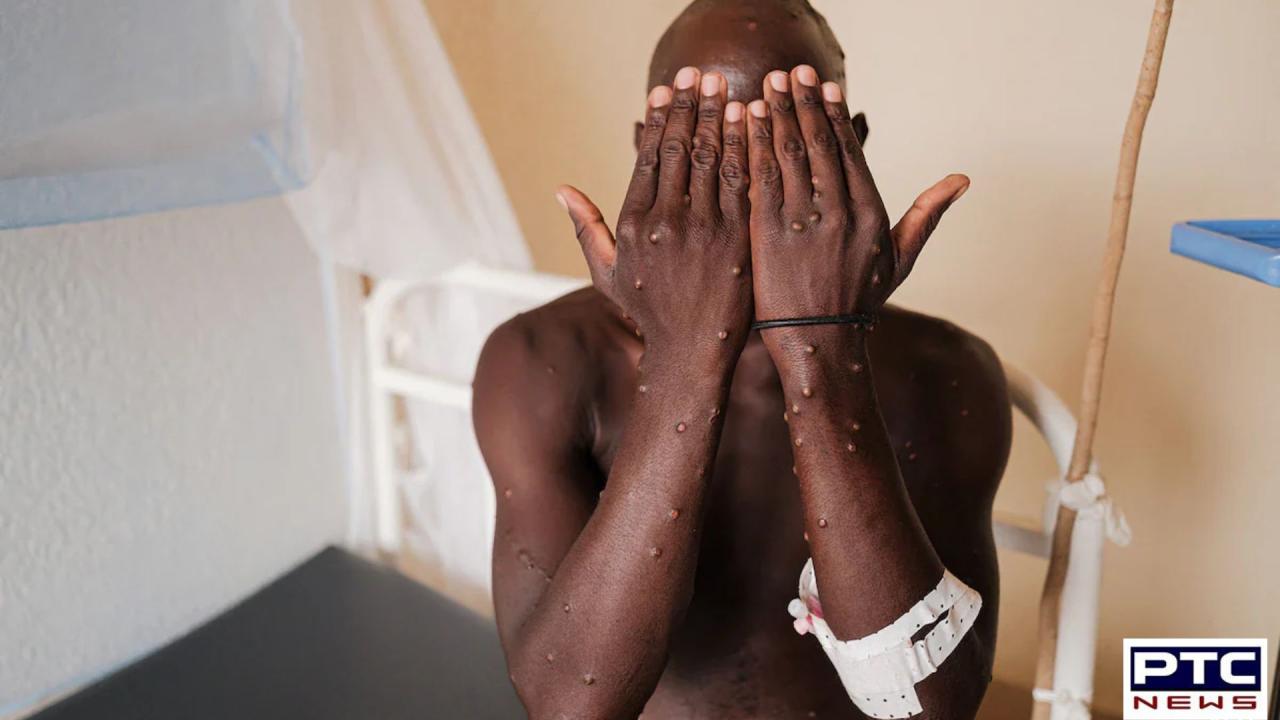

'So painful I couldn't sleep': African man reveals harrowing Mpox symptoms
PTC News Desk: Last week, the World Health Organization (WHO) declared Mpox a public health emergency of international concern for the second time in two years. This decision was prompted by the rapid spread of a new, highly dangerous strain of the virus across Africa. Since July, outbreaks have been reported in Burundi, Kenya, Rwanda, and Uganda.
Additionally, a case of the new strain has been detected in Sweden. The virus has resulted in over 570 deaths so far. Amidst this growing crisis, an African man who contracted the new "Clade 1b" strain of Mpox recently shared his harrowing experience with the disease.
Egide Irambona, a 40-year-old from Bujumbura, the main city of Burundi, described the excruciating pain caused by the virus to the BBC. "I had swollen lymph nodes in my throat. It was so painful I couldn't sleep. Then the pain subsided there and it moved to my legs," he recounted. Unlike other variants, Clade 1b is more contagious but appears to be less deadly. The primary mode of transmission for this strain is through heterosexual contact.
Irambona has been receiving treatment at King Khaled University Hospital for nine days, sharing a room with two other patients. He suspects he contracted the virus from a friend. "I had a friend who had blisters. I think I got it from him. I did not know it was Mpox. Thankfully, our seven children have not shown any signs of having it," he added.
Irambona's wife has also been infected with the virus and is being treated at the same hospital. Out of the 61 available beds in the facility, 59 are currently occupied by infected patients, with one-third of these being children under the age of 15. According to the WHO, children are the most affected demographic in this outbreak.
Dr. Odette Nsavyimana, a doctor at the hospital, expressed concern over the increasing number of patients. "We are now setting up tents outside," she said. Currently, there are three tents in use: one for suspected cases, another for triage, and a third for confirmed cases before they are transferred to the wards. "It is tough, especially when the babies come. They cannot stay alone, so I have to keep their mothers here as well, even if they have no symptoms. It is such a tough situation. I am worried about the numbers. If they keep increasing, there is no capacity for us to handle that," Dr. Nsavyimana told the outlet.
Also Read: Telangana man and colleague die in Saudi Arabian desert after losing GPS signal
Medical authorities are increasingly concerned about the lack of resources to handle the outbreak. There is no available vaccine or sufficient testing kits, and only one laboratory in the entire country can test blood samples for the virus. Maintaining hygienic conditions is also challenging in Bujumbura due to limited access to essential resources like water.
Liliane Nkengurutse, the national director of the Centre for Public Health Emergency Operations, expressed grave concerns about the near future. "This is a real challenge. The fact that diagnosis is only done in one place delays detecting new cases. Health centres are calling the laboratory saying they have suspected cases, but it takes time for teams from the lab to deploy to where the suspected cases are to take samples," she said.
Further complicating the situation is the lack of awareness about the severity of Mpox among the local population. Many people continue with their daily routines, unaware of the potential risks. "Many people do not understand the gravity of this issue. Even where there have been cases, people still just mingle," Dr. Nkengurutse told the BBC.
Some residents admitted they were not aware of the outbreak's seriousness. "I have heard about this disease, but I have never seen someone who suffers from it. I have only seen it on social media," one person mentioned. Another resident added, "I know it affects babies and young people. I am scared of it, but that does not mean I will just stay at home. I have to work. My family has to eat."
Also Read: Hezbollah launches major offensive; Israel responds with pre-emptive strikes
- With inputs from agencies
